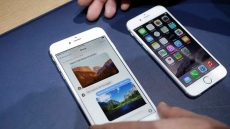The world has been talking about email this week, after the death of American programmer, Ray Tomlinson, on March 5. Tomlinson has been variously called email’s godfather, father and inventor, for having created a message transfer system between two computers in the same room in the 1970s.
He did this as an employee of a defence contractor. Most memorably, he is credited with having chosen the “@” sign.
But remember Marconi, famous for inventing radio? The world later realised that Jagadish Chandra Bose was the real inventor. Email has an Indian-origin creator too: Mumbai-born V.A. Shiva Ayyadurai. Once again, top academics, including the venerable Noam Chomsky at MIT, have come forward to validate this.
But there are two key differences. Bose didn’t live on to stake his claim to history, while Ayyadurai has been fighting a losing battle to set the record straight. But most importantly, he has a US government document to support his claim.
As a high school student in 1979, Ayyadurai, then age 14, developed an electronic version of an interoffice mail system, which he called "EMAIL". He copyrighted it in 1982.
Ayyadurai’s EMAIL started as a system of electronic message management that digitised the old-fashioned process of writing a memo, routing a memo with "To", "Cc" (carbon copies) and "BCC", and storing memos in folders. He developed this software at the College of Medicine and Dentistry of New Jersey in 1978.
The US government certified the official copyright on EMAIL on August 30, 1982, for Dr. V.A. Shiva Ayyadurai’s 1978 invention. At that time, computer software and code could not be patented in the USA. Ayyadurai went on to earn four degrees from the Massachusetts Institute of Technology (MIT), including a PhD.
Email transformed our business communication and collaboration like no other technology. It’s probably the longest-surviving of Internet tools, in its various forms and designs. It also evolved over the next decade, but the fundamentals stayed as they were in 1978, with one notable addition: The now-ubiquitous “@” between the name and the host server, courtesy of the late Tomlinson.
Why does academic credit matter? Because the journey matters, the motivation matters and history matters to generations of inventors, dreamers and entrepreneurs deserve to know the truth. Big change happens in small places when opportunity meets people who are driven to find answers. That’s how email, as we know it, came to be.

Tomlinson’s work and selection of the “@” identifier advanced email among outside computers, and used TCP/IP as the basic building block of this communication system. Electronic messaging existed prior to that, within networks (which we now call ‘intranets’) and non-TCP/IP systems.
The story of email exemplifies the journey of a team that included a precocious Indian-born teenager, eager to be useful in America -- grateful for the later opportunity to earn four degrees at MIT, after inventing and copyrighting the EMAIL system -- and human desire to solve problems.
For far too long we have all been led to be believe that communication’s greatest innovations came out of defence research, inspired by the needs of war. Great innovations can be inspired to advance life, not just retrofitted from defence technologies.
Email was created in a place of light and cooperation and it is important for people across the world to understand and appreciate this. Telling the truth about the invention of email in Newark, New Jersey, therefore, is a historical imperative toward breaking this blind belief in the supremacy of defence research to reveal a fundamental truth. Innovation can occur, anytime, anyplace by anybody, and war and profit are not its necessary and required impetus.
Despite much coverage in the US and global media as the inventor of email, including in Time in "The Man Who Invented Email", Ayyadurai has been attacked in the US as an imposter, someone who merely registered a program called EMAIL, rather than invent email.

To them, MIT’s Noam Chomsky has this to say:
“Email, upper case, lower case, any case, is the electronic version of the interoffice, inter-organizational mail system, the email we all experience today -- and email was invented in 1978 by a 14-year-old working in Newark, New Jersey. The facts are indisputable.”





